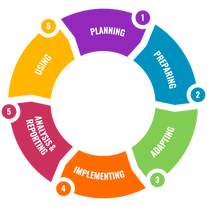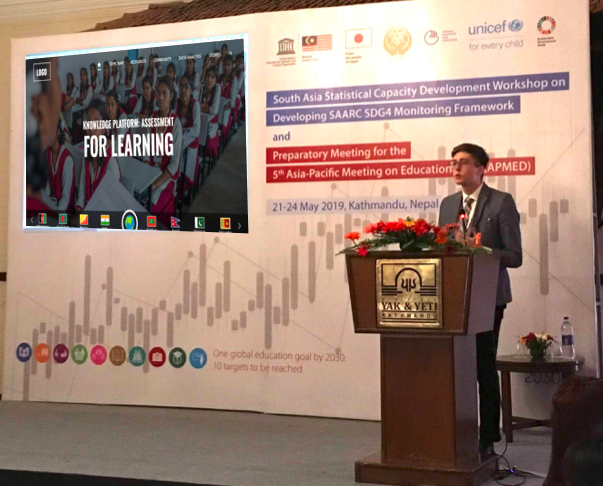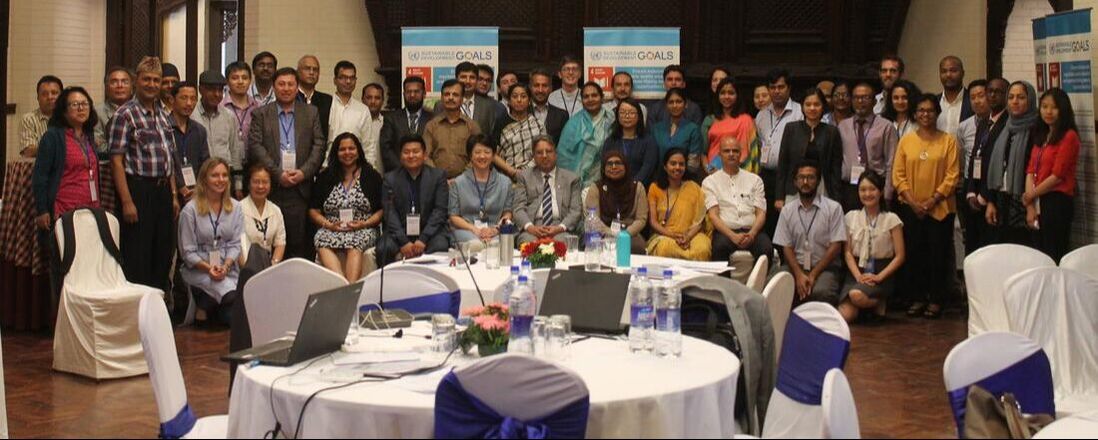|
Seth Davis, Programme Advisor, Community Systems Foundation An estimated 617 million of children and adolescents of primary and lower secondary school age worldwide are not achieving minimum proficiency levels in reading and mathematics, according to the 2019 SDG Progress Report of the Secretary General. Of these students, “about two-thirds are attending school but are not learning in the classroom or drop out of school.” From 21-24 May 2019, delegates from across South Asia gathered for the South Asia Statistical Capacity Development Workshop on Developing SAARC SDG4 Monitoring Framework. The purpose of the workshop was to strengthen the use of national assessment data in the region to improve teaching and learning. The workshop provided a space for assessment experts, statisticians and teachers to engage in discussions relating to assessments and exchange best-practices on national assessment. The workshop was hosted by the South Asia Association for Regional Cooperation (SAARC), UNESCO and UNICEF. Community Systems Foundation (CSF) and the Australian Council for Education Research (ACER) were invited to participate in the workshop and present on the development of the Knowledge Exchange Platform: Assessment for Learning.  Through an ongoing collaboration between the UNICEF Regional Office for South Asia (ROSA), ACER and CSF, the Knowledge Exchange Platform is being developed to meet the needs of the region and improve teaching and learning. As the technical development partner of the Platform, CSF is currently supporting the initiative through the design of engaging and user-friendly web pages to promote positive education outcomes. Following the completion of the design, CSF will develop and support the maintenance of the platform to create an active space for country representatives, national statistical experts, stakeholders and teachers to collaborate and engage with national assessment data. With support from ACER, the platform has become rich with best-practice guidance on the cycle of assessment. This guidance - organized around 25 key topics - will enhance understanding of assessment at the introductory, intermediate and advanced levels. ACER has also developed a methodology to identify gaps (areas most in need of improvement) in current assessment systems. This is done through analysis of the six comprehensive phases of assessment that the Platform provides, including Planning, Preparing, Adapting, Implementing, Analysis & Reporting and Using. Additionally, ACER has provided guidance on addressing these gaps, which are directly linked to the 25 topic taxonomy of the assessment cycle. To promote cross-national dialogue and engagement on better learning assessment, the platform also includes:
As CSF continues to collaborate with UNICEF ROSA and ACER on the development of the Knowledge Exchange Platform: Assessment for Learning, our team is becoming increasingly excited to see the impact that the live platform will have in the South Asia region, especially as it begins to contribute to improved assessments, the strengthened use of assessment data and cross-national coordination on best-practices to achieve national, regional and global education priorities.
0 Comments
Leave a Reply. |
Join the CSF data revolution webinar tomorrow!
COMMUNITY SYSTEMS FOUNDATION – EST 1963
+1 212 500 1335
data-driven sustainable development


